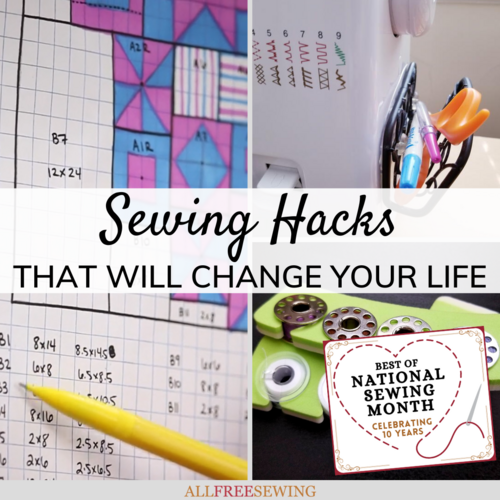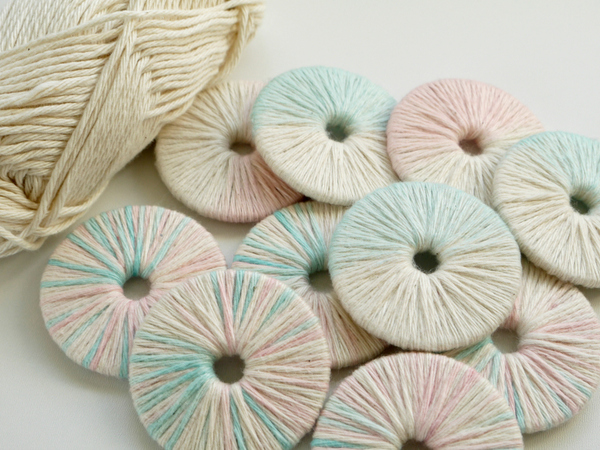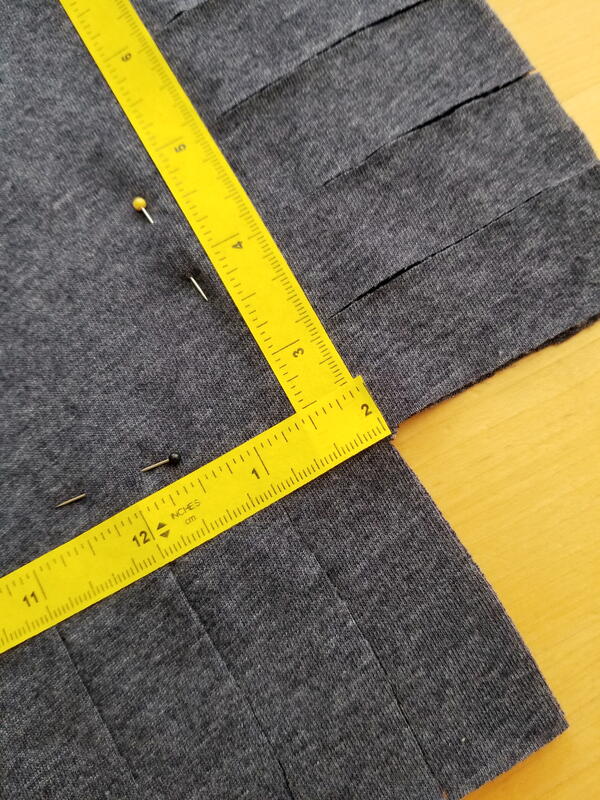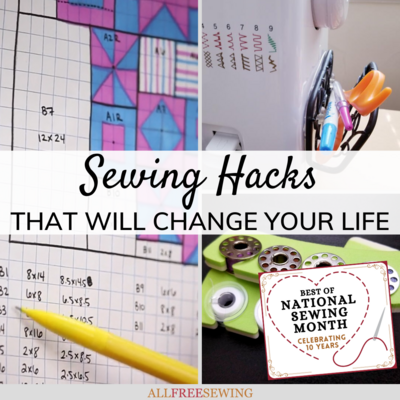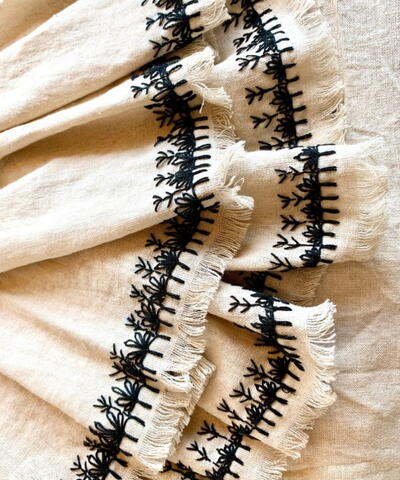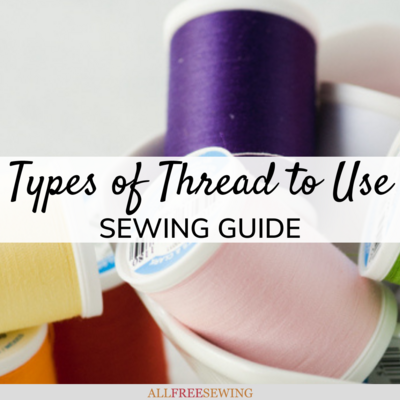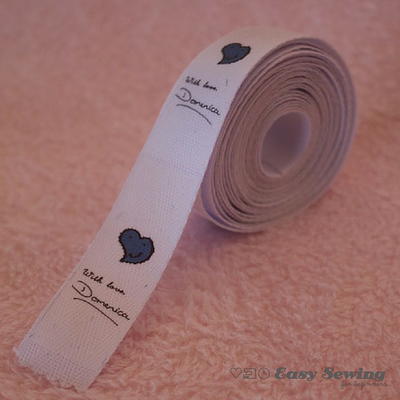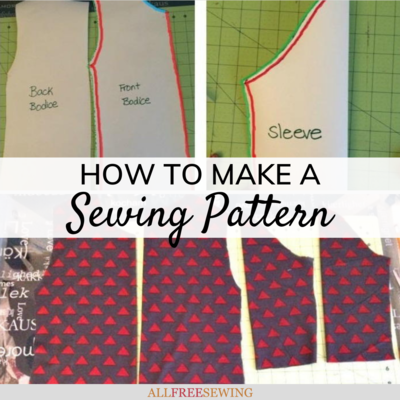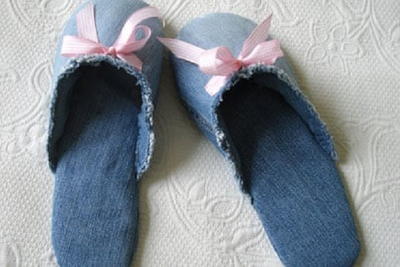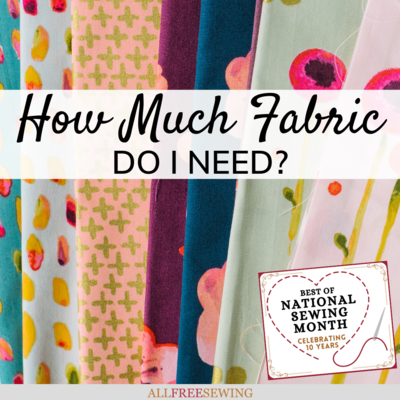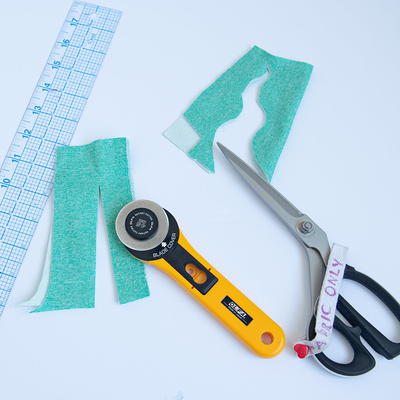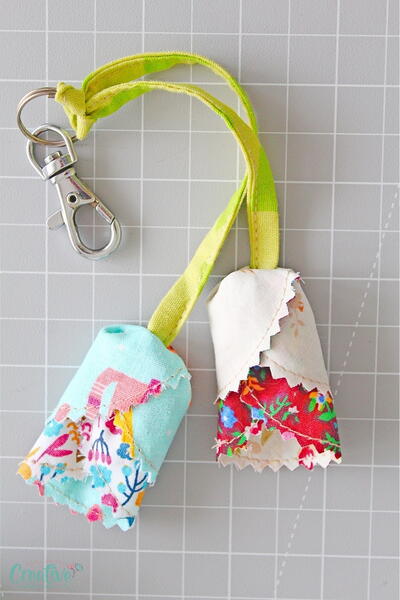50+ Sewing Hacks That Will Change Your Life
From sewing needle alternatives to simple sewing hacks that will save time and effort, plus inspire you, this page is full of ideas!
Sewing is a hobby or career that requires great concentration and skill. Though thoroughly rewarding and enjoyable, certain aspects of sewing are also difficult to manage.
From threading a needle to keeping track of your sewing supplies, the little challenges of sewing can add up to make for a draining and frustrating process. However, it doesn't have to be.
We here at AllFreeSewing have compiled 50+ Sewing Hacks That Will Change Your Life! These unique and unexpected hacks in sewing are going to make your sewing experience easy as pie.
These amazingly clever tips, tricks, and ideas will save you so much time and frustration, plus allow you to create fun and creative sewing projects without stress.
Once you learn these amazing tips and tricks, you won't believe you ever lived without them.
PS: This article is part of our National Sewing Month Celebration! Check it out here + enter to win our 5 free giveaways worth more than $1,000!
- When threading a needle, spray the tip of the thread with hairspray. It will stiffen and easily pass through the eye of the needle.
- Grab your dental floss from your medicine cabinet for this next sewing hack. You can make the perfect gathers in your skirt, dress, or window treatment patterns using floss. You might as well just buy some dental floss to keep handy in the craft room because it can be used in place of thread for several projects.
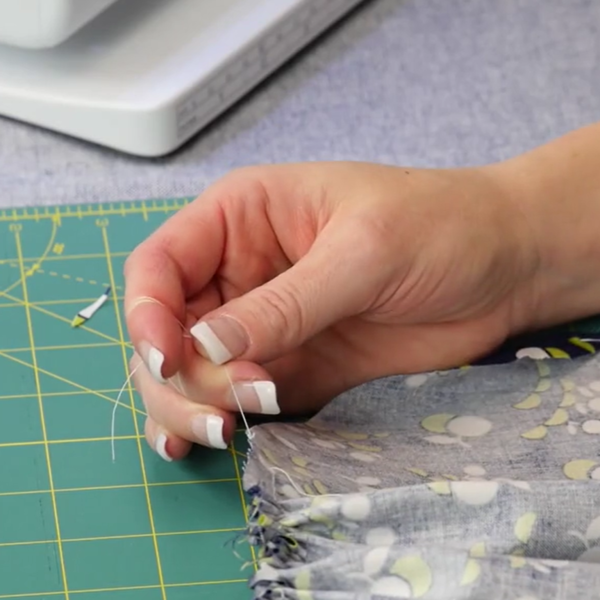
- Use the zig-zag stitch for knits to prevent stretching.
- Keep a magnet handy to pick up spare pins and needles or to help locate any that have fallen on the floor.
- Attach an inexpensive book light or craft light to the back of your sewing machine (using painter's or similar tape) to provide more light while you're sewing. Book/craft lights are also bendable, so you can shine extra light on a specific area of your project. You can also add one to your sewing table if desired.
- This is one of my favorites! Keep all of your slightly larger sewing notions and supplies like scissors, seam ripper, pencil, glasses, and whatever else you might need in one place by attaching a suction cup soap holder to the side of your sewing machine.
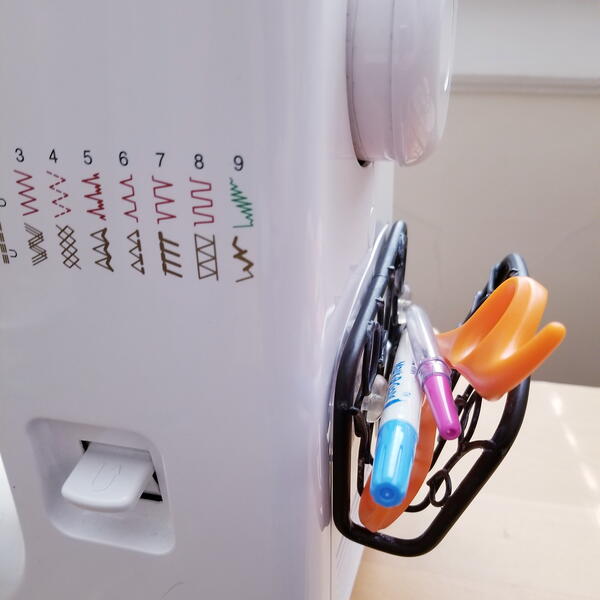
- Use steel wool as stuffing for pincushions to keep your pins and needles sharp and shiny.
- Use binder clips instead of pins for fabrics such as leather that are easily damaged. They can also be used to hold binding together on a quilt or holding multiple pattern pieces or pages together.
Note: We do not recommend using binder clips for expensive/irreplaceable fabrics as they can leave marks on certain materials.
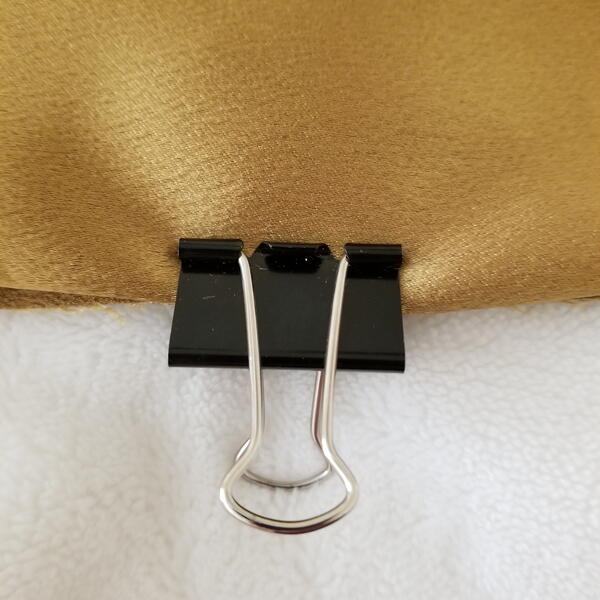
- If you don't have a bodkin handy, you can use a safety pin to easily pull elastic or cording to a waistband or seam.
- Use paint or nail polish to color your sewing machine needles for easy size labeling. Just don't forget to make yourself a guide to keep with your sewing needles (or while you're memorizing the color-coding).
- Here's a rubber band sewing hack for you! Wrap a thick and large rubber band around the arm of your sewing machine and use it to line up your fabric to create a straight seam allowance where you need it.
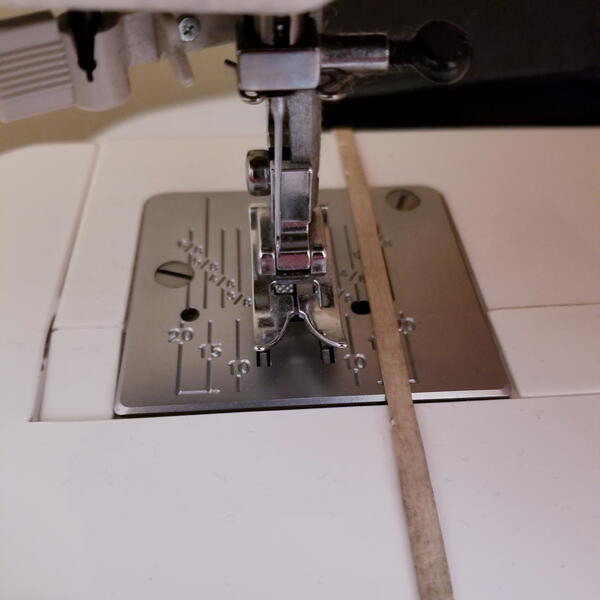
- Use a spray bottle of water to remove most of the static cling in certain fabrics like tulle.
- You can use a wooden chopstick with a pointed end for many things when sewing, including guiding fabric under the pressure foot of your machine or gently poking out corners.
Note: It's best to use polished chopsticks for this, not the cheap kind you get from restaurants.
- To prevent fraying, cut your fabric out with pinking shears. Learn more about fraying by reading our two main guides on the subject:
How to Stop Fraying on Fabric
How to Pre Wash Fabric Without Fraying
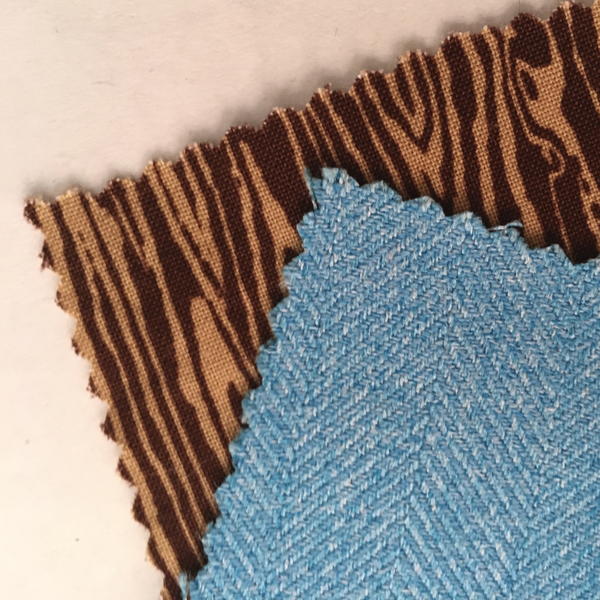
- Apply clear nail polish to the top of buttons to keep threads in place.
- Use a bar of soap as a pincushion. Just be sure to put it on a plate or some other surface that will protect your table from the residue.
- Fake a hem with bias tape. Learn more by reading our guide, What is Bias Tape?
- Buy a pack or notebook of graph paper. It's an easy way to design your own quilt blocks, quilts, and other geometric designs. Psst: Want to learn how to design your own fabulous quilt? Check out How to Design a Quilt.
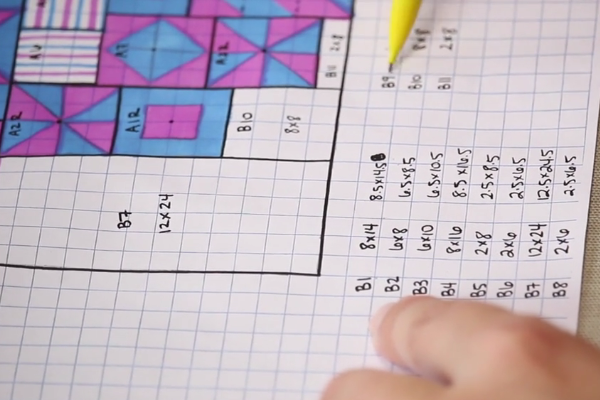
- Tie your scissors around your neck with ribbon to make sure you never misplace them while sewing.
Note: We'd highly recommend either using folding scissors or putting a cap of some sort over the points to protect yourself!
- Use old blankets as batting for quilts. You can either reuse something you have or buy inexpensive blankets online or at your local thrift store.
- A related clever sewing hack is to reuse stuffing from old pillows or stuffed animals to stuff your new creations. Again, you can use what you have or find inexpensive pieces online or at resale shops.
- Use toe separators to store your bobbins. Unexpectedly perfect fit!
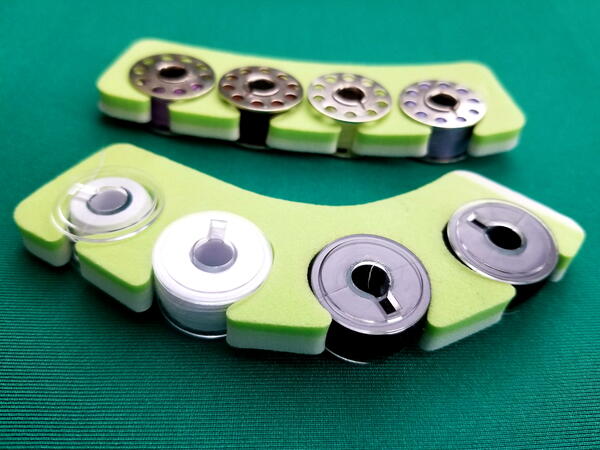
- If you're using a slippery fabric, put a layer of muslin under it and pin the layers together before cutting.
- Use a hair straightener to press fabric between buttons or embellishments.
- Cut a straight line through burlap by pulling out one strand and cutting along the gap.
- Substitute soap for chalk when tracing lines on fabric.
- Store pins, needles, and thread in a matchbox or pill bottle for a mini, on-the-go sewing case.
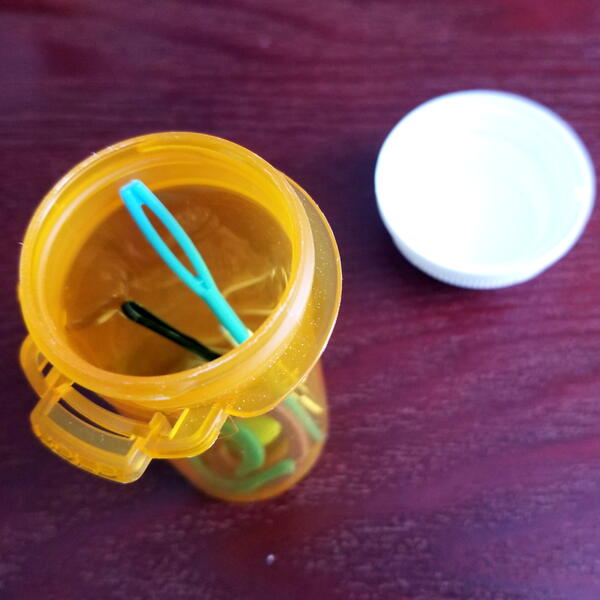
- Have a spool that is too big for your sewing machine? Place it in a mug next to your machine directly under the spool pin.
- Similarly, if working with large spools or cones of thread, use a paper towel holder to keep it upright and able to pull from as you sew.
Note: Try to find a heavy-bottomed paper towel holder (or tape it to the table) so that it's as secure as possible.
- Pin a buttonhole on both sides or the side you're moving toward when opening. That way, you won't rip it open past the end stitch when opening it with a seam ripper.
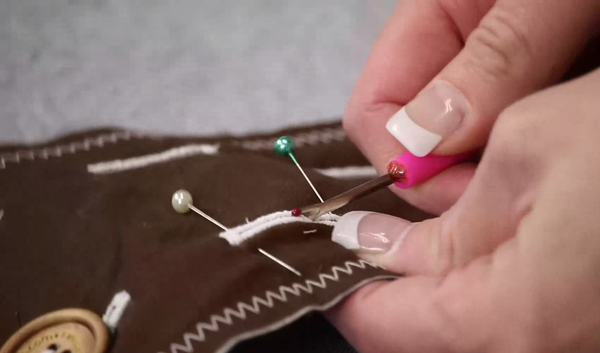
- Attach a tape measure to the edge of your sewing table so your measurements are always exact and you never misplace your ruler.
- Sew extra buttons on the inside of a coat sleeve so you never lose them and they'll always be handy.
- You don't have to buy expensive fabric to print photos or designs. Instead, soak your plain cotton fabric in a mixture of Alum, washing soda, fabric softener, and hot water to get vibrant colors that won't bleed.
- Use freezer paper to cut out patterns by pressing the paper to the fabric, causing it to adhere. You will easily be able to cut the fabric without weights and without cutting out your pattern pieces. Similarly, you can make freezer paper stencils!
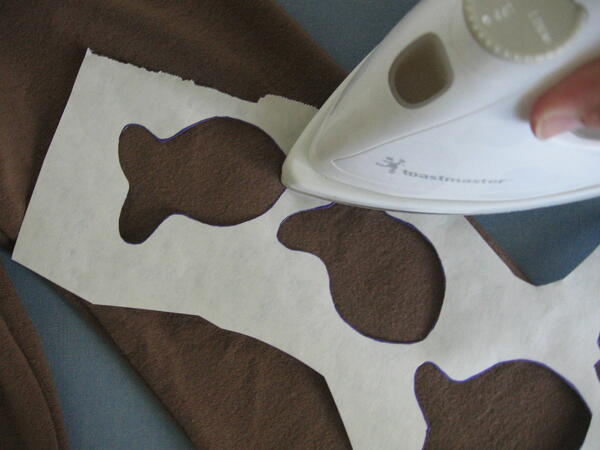
- Do you make your own purses, handbags, or totes (or want to start)? You will find so many mind-blowing sewing hacks in the guide, Handmade Handbag Hacks from eSheep Designs. You'll learn creative hacks, such as reusing belts to embellishing with ribbon or bias tape for purse straps. Clever, right?
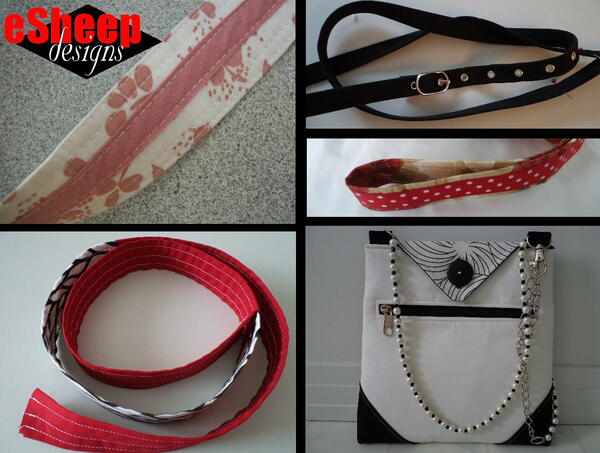
- Use bobby pins to hold pleats in place while ironing. Bobby pins can also be used to hold appliques, buttons, thread, embroidery floss, and more. Keep them close for unexpected needs while you work!
- Use sponges to move fabric while machine quilting. Sounds strange, but it's an amazing quilting hack that you'll want to try.
- Thread stuck in your bobbin case or elsewhere in your machine or project? Use extra-long tweezers! Thin tweezers can help you thread your machine, help remove loose threads in tight spaces, as well as pull tiny threads after using your seam ripper.
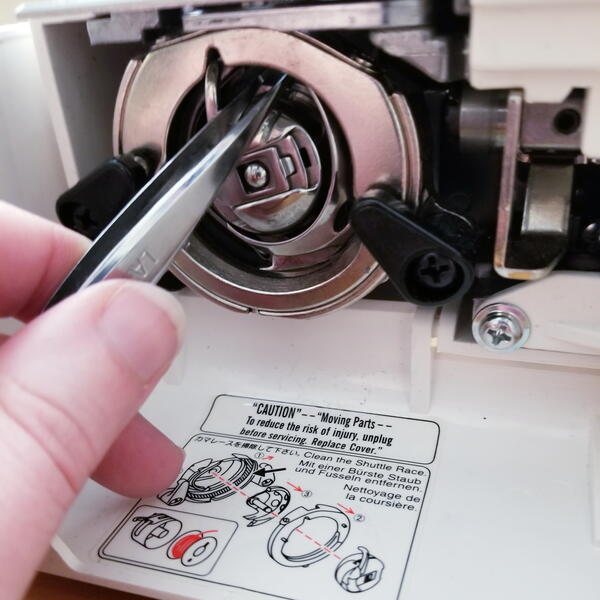
- Use washi tape to temporarily mark or hold fabric or patterns. Because it has such a low tack, it can easily be removed without damage (plus, it's inexpensive). It can be used to decorate or measure, too!
- Sharpen dull scissors by cutting tin foil or sandpaper. There are actually several cheap or DIY hacks for sharpening scissors. Learn them all in our guide, How to Sharpen Sewing Scissors.
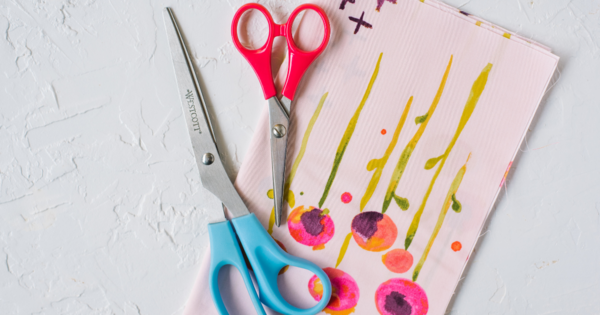
- Buy a pack of removable wall hooks, such as those made by 3M. These hooks can be temporarily added to your wall. They are ideal for displaying sewing projects in progress or just finished pieces that you want to admire. Easily move them as needed to fit the project sizes.
- Learn the invisible (aka ladder) stitch and blind hem. This convenient and hidden stitch provides "seamless" seams and closures. Learn more with this DIY Ladder Stitch or Invisible Stitch tutorial.
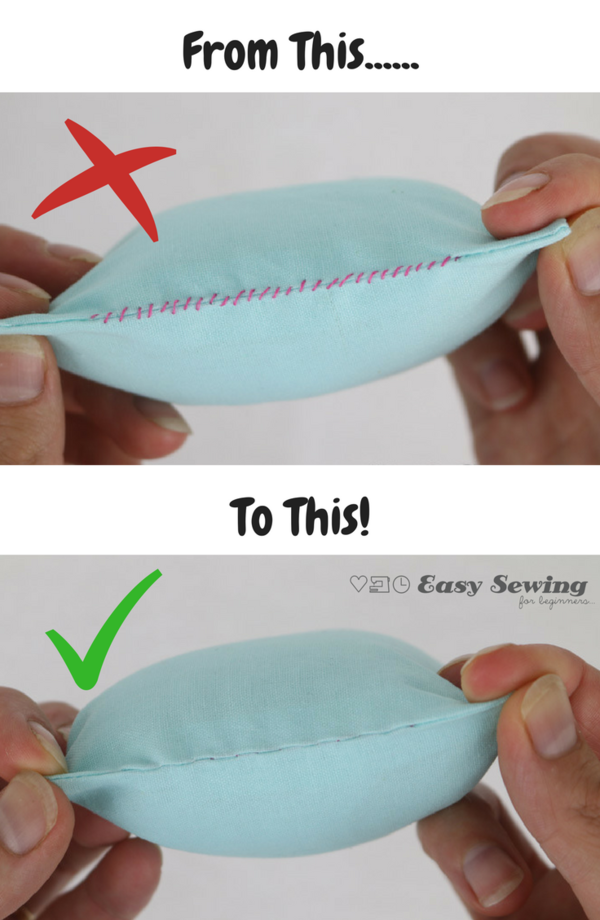
- No iron? Use a wooden stick to press fabric. You can use a 6-inch stick with an angled edge as a makeshift iron to press down your seams between stitching sessions. Surprisingly, it works as well as a regular iron according to many sewists!
- Keep your scissors safe and everything else protected from the sharp points by sewing a bag or adding rubber tips on the ends. It's an ideal sewing hack for traveling with your sewing supplies. We love this Scissors Pouch Pattern from So-Sew-Easy!
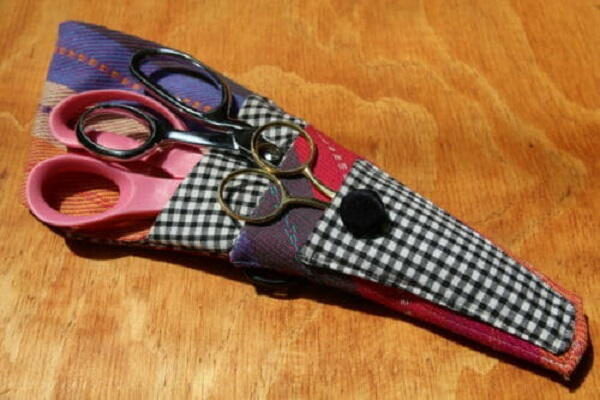
- Create perfect points by using fusible interfacing. Learn the trick by reading this Perfect Pinwheels tutorial.
- Add a DIY gripping mat under your sewing machine foot peddle to keep it in place. Rubber jar openers work perfectly and are so inexpensive! Use one made from textured rubber and place it under your foot pedal to keep it from sliding around.
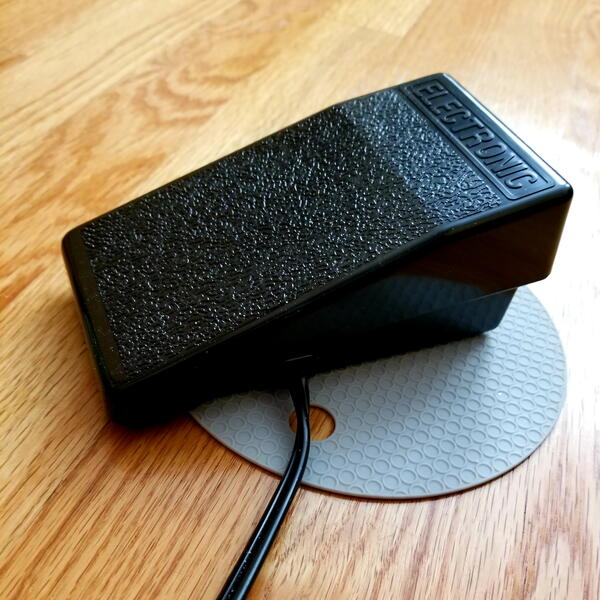
- We also asked our AllFreeSewing Facebook fans if they had any tips to share. Tricia H says,
"The greatest tip I ever received was to sew 5 or 6 stitches off the seam onto a small patch of fabric so as to keep needle threaded when starting next seam.
- The next tip is to tie a new spool of thread onto the thread from a needle and pull through the eye of the needle to change thread. Works great on the serger too."
- Pipe cleaners are great to have on hand for many reasons. Our favorite sewing hack using them? Bend one pipe cleaner into an oval, attach it to a straight one, and VOILA! You've got a convenient pipe cleaner brush. You can remove dust from under and around your sewing machine using this simple tool that costs only pennies to make.
- Not all sewing patterns include a seam allowance, but you can easily add one with this technique using supplies you definitely have: a rubber band (or tape) and two pencils (or pens). Rubber band or tape two pencils/pens together so that they are even at the points. Press down on both while you're tracing the pattern. Ta-da! You've drawn the 1/4" or so seam allowance you need for most projects.
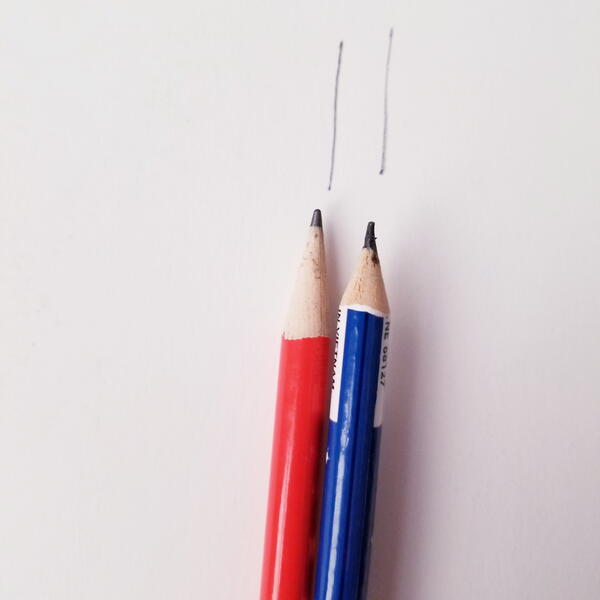
- Invest in special sewing machine feet. They do all the work and let you complete projects with ease and speed. Learn more by reading our ultimate guide, Types of Sewing Machine Feet.
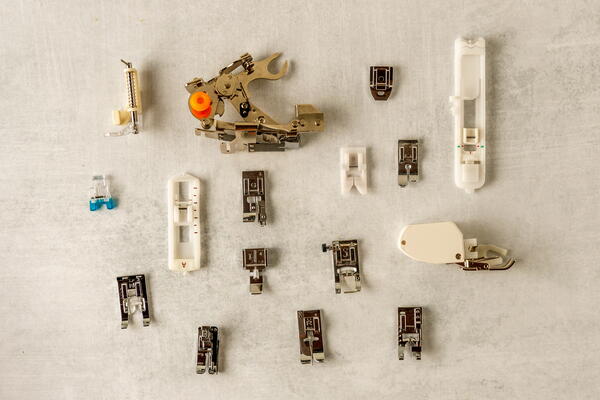
- Invest in long wall magnets to hold your scissors, pins, needles, bobbins, and other magnetic supplies. This tip and more can be found in Sewing Room Hacks from Heather Handmade.
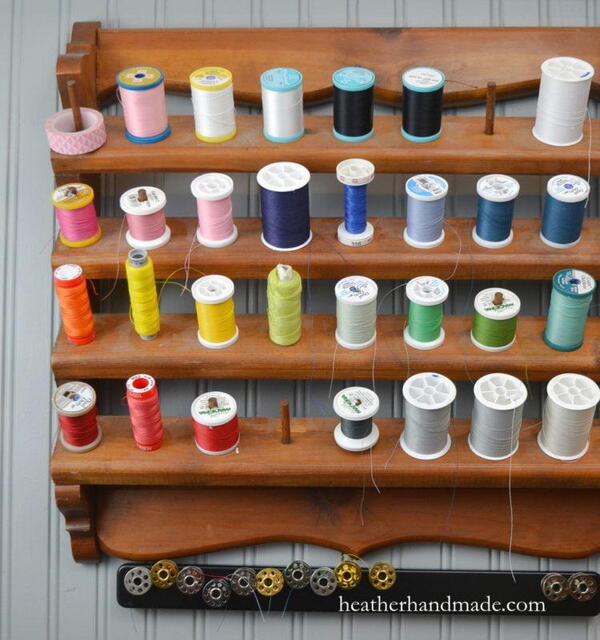
- Uh-oh. You just realized there is a hole in your favorite jeans but don't have time to sew (or are somewhere without your needle and thread). What to do? Well, just read through our amazing no sew hacks in How to Fix a Hole in Pants Without Sewing.
- Last but certainly not least, our Facebook fan Rose C reminded us of one of the most important tips of all:
"My most favorite tip in learning to do anything is to be patient with yourself. If you really want to learn to do it, you will, just be patient with yourself, don't get upset or angry, you can do it."
So true. Happy sewing, all!
Pin This Page on Pinterest
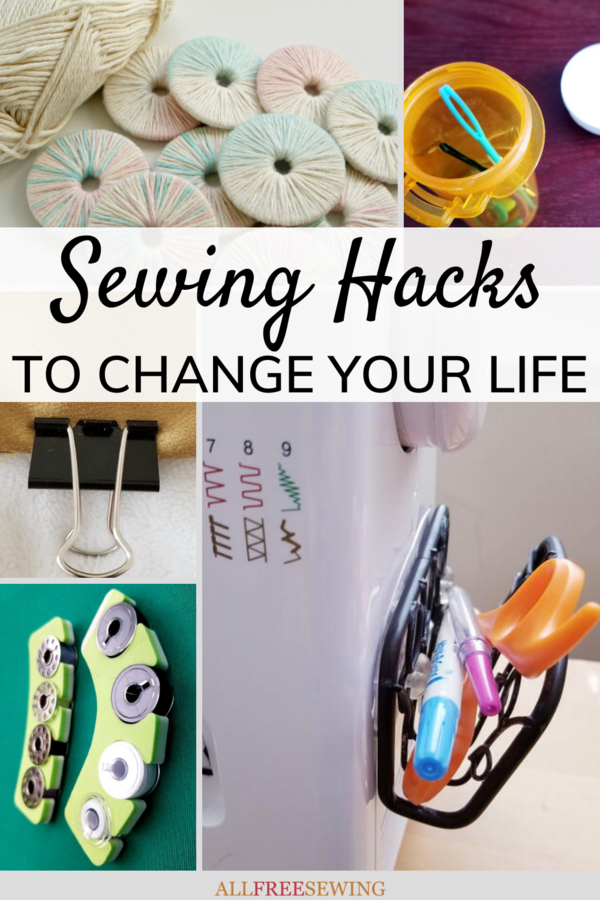
Want More?
50+ Mind-Blowing Crochet & Yarn Hacks >>
Which sewing tricks make your life easier?
Let us know in the comments!
Read Next50+ Sewing Crafts That Sell Well

